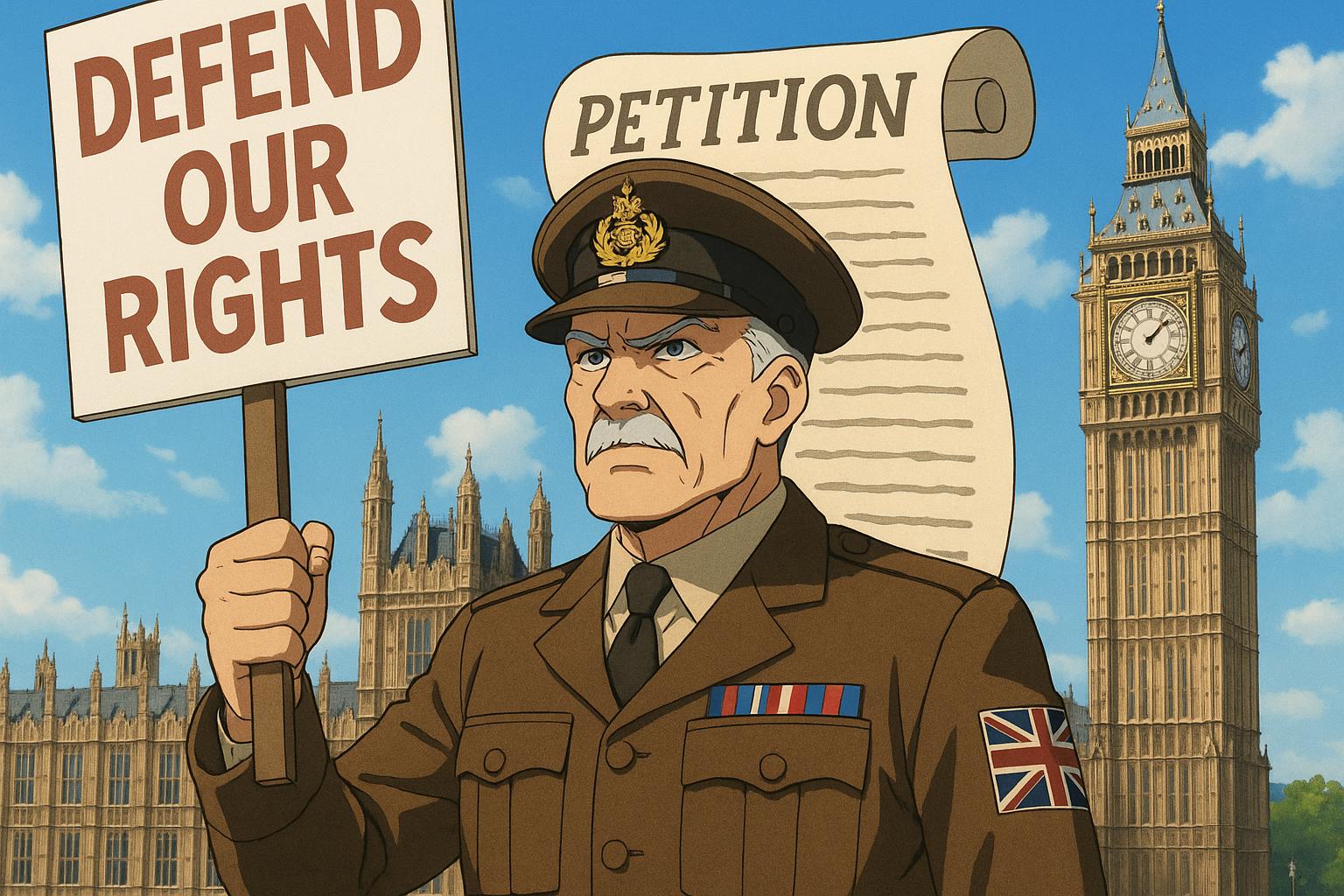British veterans of the Northern Ireland conflict find themselves under intensified scrutiny as they advocate for their rights, particularly in relation to a significant petition aimed at safeguarding them from prosecution. This increasingly contentious issue exposes the Labour government's failure to recognize the sacrifices made by those who served during this tumultuous period.
The petition, now boasting over 87,000 signatures on the UK Parliament's website, calls on the government to uphold existing laws that protect veterans from potential legal repercussions for actions taken during their service from 1969 to 2007. Sir David Davis, a former Conservative minister, recently highlighted in the House of Commons that there are alarming reports of regimental associations being told to scrub references to this petition from their social media. Such bureaucratic interference is an affront to democracy, aiming to silence veterans during their pursuit of rightful recognition and protection.
Defence Secretary John Healey's claim of ignorance regarding these pressures does little to reassure those who feel their voices are being stifled. His promise to investigate is merely a band-aid solution that overlooks the necessity for the government to actively defend veterans’ rights against encroaching state oversight.
The controversy surrounding the Northern Ireland Troubles (Legacy and Reconciliation) Act 2023, a product of the previous Conservative administration, adds further complexity. While the Act has stalled numerous civil cases and inquests, the Labour government’s intent to repeal and replace crucial provisions could expose veterans to renewed legal vulnerabilities. Such proposed changes evoke fear among many veterans, particularly older service members, who worry about being dragged back into investigations that should remain closed.
Protests in Westminster have illustrated the growing unrest among veterans, as they rally against what they perceive as an erosion of their rights. These expressions of dissent highlight the disconnect between the government and those who have served their country, further aggravating an already fraught situation.
Adding to the turmoil, an international panel of human rights experts has condemned the UK government’s approach to legacy issues, asserting that it hinders proper accountability measures. This unwarranted leniency towards security forces, coupled with the Labour government's lack of regard for veterans’ anxieties, demonstrates a troubling trend in policy direction.
With shadow veterans minister Andrew Bowie drawing attention to the dangers posed to veterans’ lives and reputations should legacy legislation be altered, the stakes could not be higher. As commemorations for pivotal historical events unfold, the insensitivity of the current administration becomes glaringly apparent, underscoring their failure to grasp the weight of these discussions.
As the political landscape shifts, the fate of veterans’ rights and the implications of legislative changes will be critical in informing future policies regarding the legacy of the Troubles. The government's response to this petition and the broader conversation surrounding veterans’ rights signal a pivotal moment; one that could either reaffirm the dignity of those who served or further entrench the neglect that many are already experiencing.
Source: Noah Wire Services
